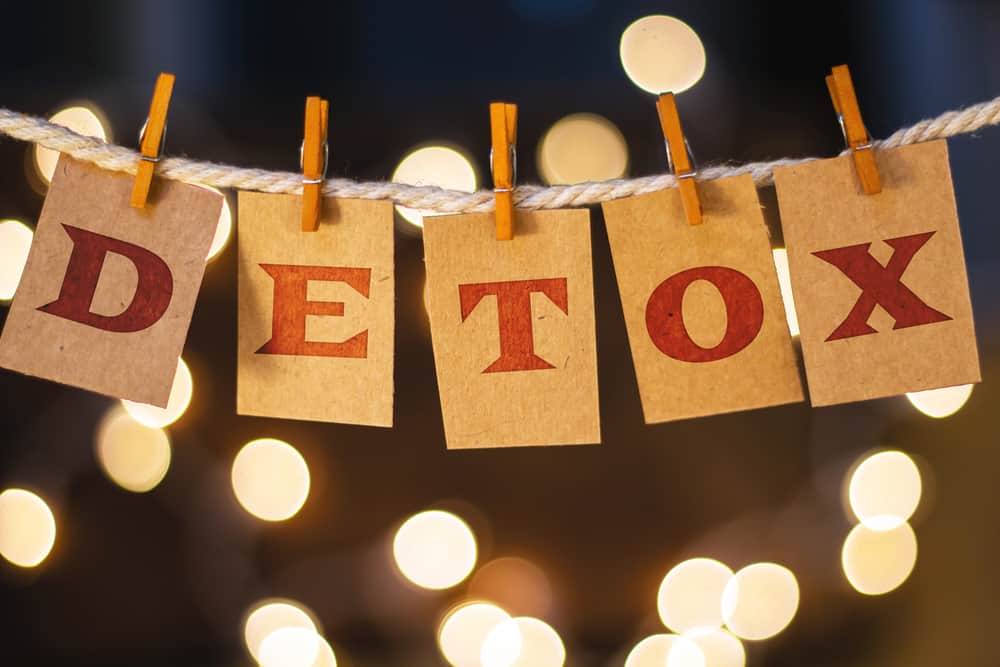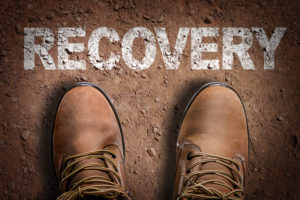As a prescribed medication, benzo use is not uncommon. The number of Americans who filled prescriptions for benzodiazepines increased to 13.1 million by 2013, as reported by the National Institute on Drug Abuse. It also highlighted a second study that showed the percentage of people prescribed benzos with opioids rose by 17 percent in 2013. Both benzos and opioids are used to calm feelings of anxiety and treat other conditions, such as insomnia and panic attacks, but used together, the risk of overdose increases, since both are addictive.
Benzodiazepines take effect quickly and maintain a half-life that can sometimes allow the drug to linger in the body for days. As a person continues taking benzos, it leads to a cumulative buildup that causes the body to create a tolerance to the drug. This often leads to taking benzos more frequently or at higher dosages in order to feel the same relaxing effects as before. This continuous use behavior eventually leads to benzo dependence and ultimately, addiction.
Once the body has reached the addiction level, withdrawal symptoms will begin to manifest once the drug is no longer present in the body. The physiological changes make the brain think it needs to have benzos in order to properly function. This dangerous alteration is what can lead to overdose, but can result in several other harmful side effects as well, such as tremors, seizures, and hallucinations.
Even if a person wants to stop using benzos for a period of time, the pain and discomfort of these symptoms cause a relapse and the cycle of addiction continues. The best route of care is to undergo benzo detox under the supervision and care of a medical team. Since there’s no way to predict how the body will react at any stage of the withdrawal process, having a specialists in place to monitor your health and comfort is essential in order to detox as safely as possible.
Benzo Detox Symptoms and Factors That Affect the Process
In addition to the serious nature of experiencing seizures or hallucinations, other benzo detox symptoms include:
- Blurred vision
- Racing heart rate
- Aches and pains
- Muscle tension
- Restlessness and mood swings
These are only a few of the symptoms that may occur. The frequency and severity vary from person to person. Typically, people can expect to experience the feelings of detox for several days and in some cases, up to two weeks or longer. The first few days are when they are at their most intense before they taper off, but in some cases, they remain steady throughout the entire process.
It depends on how long you’ve been battling addiction and how much of the drug you currently take. The body needs time to adjust to being without benzos and there are factors that can affect this timeline, such as relapse, current health, and dual disorders.
Experiencing Relapse
Relapse is a regular occurrence during the detoxification process, especially when attempting to manage withdrawal symptoms alone. It is the continued use of drugs after a brief period of abstaining. When withdrawal symptoms begin, turning to drug use to alleviate the pain, if only temporarily, is often what happens. Once relapse occurs, the process immediately starts over.
By going through detox under the supervision of others, it helps to prevent relapse and make withdrawal as comfortable as possible in a safe, secure environment. It’s unsafe to abruptly stop using benzos. The optimal route of care is to lower dosages a little at a time, which makes the assistance of others crucial to care and monitoring of this process.
Assessing Current Health
A person’s current state of health also affects the reaction and timeline to detox. If someone already has a weakened immune system or is battling other types of health conditions, it can take longer for the body to recover. Addiction is separate from the original state a person is in and can slow down the detox timeline.
When battling with more than one strain on the body at the time, it can be difficult to prioritize or know how to handle each successfully. With a team of dedicated medical personnel that understands your specific medical history and current needs, you can give attention to all aspects of your health to promote efficient and effective healing.
Identifying Dual Diagnosis
In addition to physical health, signs of mental disorders can also affect the detox and treatment process. A dual diagnosis is when a person suffers from a mental illness concurrently with an addiction problem. This is common, especially when detoxing from benzos, since benzos are used to treat associated problems linked to mental health disorders like insomnia, anxiety, and panic attacks.
A dual diagnosis could be telling of a bigger underlying problem like bipolar disorder or other similar mental health issues, which requires comprehensive treatment that goes beyond the initial detox stage. There’s no way of knowing which of these additional challenges will arise during detox. Planning what to expect can only be done on a broad level. Each person reacts to and handles the process differently and must be treated on a case-by-case basis.
Timeline of Addiction Treatment: From Detox to Outpatient Care
Addiction treatment plans are customized per the individual based on their specific needs. The commitment is to help people move forward in their healing to reach a year of continuous sobriety. However, this can be altered in any way to match what’s required at the time. The average withdrawal period from benzo abuse lasts anywhere from 7-10 days, followed by several months of residential treatment, outpatient care, and addiction support services.
Each phase of care is part of the full continuum of care that focuses on different areas of treatment with each step, but still provides a cumulative result. In a benzo detox program, a person has to undergo withdrawal from benzos and eliminate substance use before starting residential treatment. Residential treatment includes group and individual counseling and educational sessions about addiction. Recreational activities like meditation and exercise round out a full day of care in a safe, peaceful environment.
Four months is the recommended amount of time for a temporary stay. A full support system of specialists are assigned to each individual’s treatment plan and will track progress along the way to alter the timeline as needed. Once residential treatment is complete, the next phase of care is an outpatient treatment program. This requires less of a time commitment, but is equally important. An intensive outpatient program continues the teaching and therapies introduced in residential treatment to guide the transition back to day-to-day-life.
The final phase of care involves addiction support services. These provide accountability and support on a regular basis to allow people to continue with their sobriety in a healthy, successful way. The last part of the process makes as much of a difference as the first. The detoxification and residential treatment programs involve intensive, monitored care, which slowly change as the first year comes to an end.
Part of the process is creating a post-treatment plan that allows you to feel prepared and in charge of your next steps. It’s important that you feel connected with the right support to continue healing when no longer officially part of a program. As each step of the process builds upon the last, you’ll continually have the guidance, information, and support you need to move on to your next stage in life.
Unique Treatment Programs Designed to Fit Individual Needs
As part of the final stage of care, there are unique programs available, which have been designed to foster self-reliance and long-term recovery. A major part of healing is being able to transition back to the world with the necessary coping tools and techniques to handle future temptations and challenges.. With addiction support services that include help with enrolling in school or securing employment, as well as learning how to cope with trauma and rebuilding family ties, people can focus on specific lifestyle needs as they continue on a sober path.
Although there is a structured route to care, not everyone experiences recovery in the same way or requires the same kind of assistance. Some may require a regulated space to detox only before moving into outpatient care or returning to addiction support services. Some may require extended time in the first two stages of detox and residential treatment. The important thing to remember is that the journey is personalized and doesn’t require comparison.
Everyone begins in the medical detox phase. It is the crucial first step regardless if you’ve received treatment before or you’re joining a treatment facility for the first time. It allows you to start healing without the influence of benzos or any other outside influences taking the reins. Slowly, but surely you’ll begin to rebuild your life without the reliance on drugs and replace addiction with healthier patterns and choices. What matters is having the right environment and people who are skilled and dedicated in guiding your recovery at a pace that makes the most sense for you.
Sources:
- National Institute on Drug Abuse. “Benzodiazepines and Opioids.” National Institute on Drug Abuse, 16 Mar. 2018, www.drugabuse.gov/drugs-abuse/opioids/benzodiazepines-opioids
- Publishing, Harvard Health. “Benzodiazepines (and the Alternatives).” Harvard Health, Mar. 2014, www.health.harvard.edu/mind-and-mood/benzodiazepines_and_the_alternatives
Author
-

President, CEO & Founder at Northbound Treatment Network
Paul Alexander is the CEO, President & Founder of Northbound Treatment Network in Newport Beach, California. He believes wholeheartedly in transformational leadership, organizational health and effective, fully integrated substance use disorder and mental health treatment. With over 27 years of experience in behavioral healthcare, Paul has extensive knowledge of “in vivo” treatment modalities, clinical development, operations, strategy, marketing and financial planning. He has been widely recognized for his development of collegiate-based residential treatment programs for students in recovery and authored a research study at The University of California confirming this modality’s effectiveness.
Paul’s comprehensive professional experience, willingness to innovate, and emphasis on organizational health are vital factors in Northbound’s continued success. Paul received his Certified Addiction Treatment Specialist training at Saddleback College in Mission Viejo, CA, and was awarded Outstanding Alumni Service Award in 2002. Paul holds a Bachelor of Arts degree in Criminology, Law and Society, Summa Cum Laude, from University of California, Irvine, and a Juris Doctorate degree from Loyola Law School of Los Angeles. Paul currently serves on The National Association of Addiction Treatment Providers (NAATP) board. In addition, he serves on The Family Recovery Foundation board and The CarePossible board in Orange County; both organizations are committed to raising funds for family recovery and treatment for former military personnel. Paul is in recovery himself and lives in Orange County with his wife Silvana and his two young sons, Noah and Dean.










